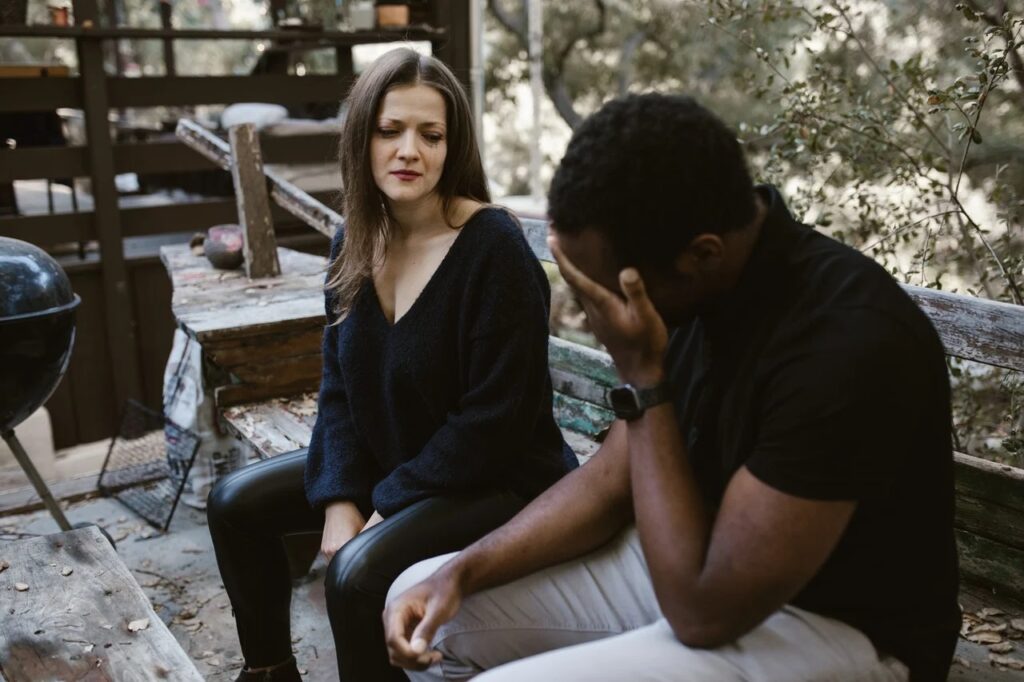It is important to note that every woman’s experience with abortion is unique, and there is no one-size-fits-all answer to this question. However, there are several emotional and psychological factors that many women may experience after having an abortion.
One common emotional response to abortion is feelings of guilt or shame. Women may feel like they have done something wrong or that they have let themselves or others down by having an abortion. These feelings can be intensified by social or cultural stigma around abortion.
Some women may also experience feelings of sadness or grief after having an abortion. This can be particularly true for women who wanted to have a child but felt they couldn’t for various reasons.
In addition, some women may experience anxiety or depression after having an abortion. This can be caused by a range of factors, including hormonal changes, the stress of the decision-making process, or social pressure.
It’s also important to note that not all women experience negative emotional or psychological effects after having an abortion. Some women may feel relief or a sense of empowerment after making the decision to have an abortion.
If you or someone you know is experiencing emotional or psychological strains after an abortion, it’s important to seek help from a qualified healthcare professional or mental health provider. There are many resources available to help women cope with the emotional and psychological effects of abortion.
Are the Strains between Late Term and Early Abortions Different
The emotional and psychological strains of late-term abortions may be different from those of early abortions. Late-term abortions are typically performed in the second or third trimester of pregnancy, while early abortions are performed in the first trimester.
Late-term abortions are often associated with more complex medical and emotional issues than early abortions. Women who choose to have a late-term abortion may have wanted to have a child and have struggled with the decision to terminate the pregnancy. They may have also developed a stronger emotional bond with the fetus as it has developed over time, which can make the decision to terminate more difficult.
Additionally, late-term abortions are often associated with medical complications, such as preterm labor, which can add to the emotional and psychological strain of the experience. Women who have late-term abortions may also face more stigma and judgment from others due to the perception that they had more time to make the decision to terminate the pregnancy.
That being said, it’s important to note that every woman’s experience with abortion is unique and individual. Some women may find that the emotional and psychological strains of an early abortion are just as difficult as those of a late-term abortion, while others may not experience significant emotional or psychological effects at all.
Counseling
Counseling can be an effective way for women to address the emotional and psychological strains associated with abortion. A trained counselor can provide a safe and supportive environment for women to explore their thoughts and feelings related to their abortion experience.
Counseling can help women process their emotions, develop coping strategies, and work through any feelings of guilt, shame, sadness, or anxiety they may be experiencing. Counseling can also help women identify any unresolved issues related to their decision to have an abortion, such as conflicts with their values or beliefs.
Counselors who specialize in reproductive health can also provide women with information about the physical and emotional aspects of abortion, as well as options for contraception and other reproductive health services.
It’s important for women to seek counseling from a licensed and qualified mental health provider who is trained in working with individuals who have experienced abortion. Women can find counseling services through their healthcare provider, local reproductive health clinics, or community mental health centers.
Overall, counseling can be a valuable tool for women who are experiencing emotional and psychological strains related to their abortion experience. It can help women work through their emotions, gain a deeper understanding of themselves, and move forward in a positive way.

How can you support a girlfriend who wants to perform an abortion
If your girlfriend has made the decision to have an abortion, it’s important to offer her your support and understanding. Here are some ways you can support her:
- Listen to her: Your girlfriend may have a lot of emotions and thoughts about the decision to have an abortion. Listening to her without judgment or interruption can help her feel supported and heard.
- Validate her feelings: Let your girlfriend know that her feelings are valid and that you understand that this is a difficult decision. She may be experiencing a range of emotions, including sadness, anxiety, or guilt.
- Help her access resources: Your girlfriend may need help finding a healthcare provider who can perform the abortion, or accessing financial assistance to pay for the procedure. You can help her find resources in your community, or offer to help her make phone calls or schedule appointments.
- Provide practical support: After the abortion, your girlfriend may need help with practical tasks such as transportation, getting groceries, or taking care of household chores. Offering to help with these tasks can be a valuable way to support her.
- Take care of yourself: Supporting a partner through an abortion can be emotionally challenging. It’s important to take care of yourself and seek support if you need it. You can talk to a trusted friend or family member, or consider seeking counseling or therapy.
Ultimately, the best way to support your girlfriend is to be there for her, listen to her, and offer your support in whatever ways she needs.
How can partners discuss on matters abortion?

Discussing the topic of abortion can be a difficult and sensitive conversation to have with a partner. However, it’s important for partners to have open and honest communication about this topic, especially if they are facing an unplanned pregnancy or considering their options.
Here are some tips for partners to discuss the topic of abortion:
- Choose a private and comfortable setting: It’s important to have a conversation in a safe and private space where both partners feel comfortable and relaxed.
- Listen and be respectful: Both partners should have an opportunity to express their thoughts and feelings about the decision to have an abortion. It’s important to listen to each other with an open mind and without judgment.
- Use “I” statements: Using “I” statements instead of “you” statements can help partners communicate their own feelings and thoughts without placing blame or making assumptions.
- Discuss potential outcomes: Partners should discuss the potential outcomes of different options, including the emotional, physical, and financial consequences of having an abortion or continuing the pregnancy.
- Seek support: Partners can seek support from a counselor or healthcare provider to help them navigate this difficult decision and communicate effectively.
Remember, this is a deeply personal decision and there is no right or wrong choice. It’s important for partners to communicate openly and respectfully with each other, and to ultimately support each other’s decisions regardless of what that may be.




